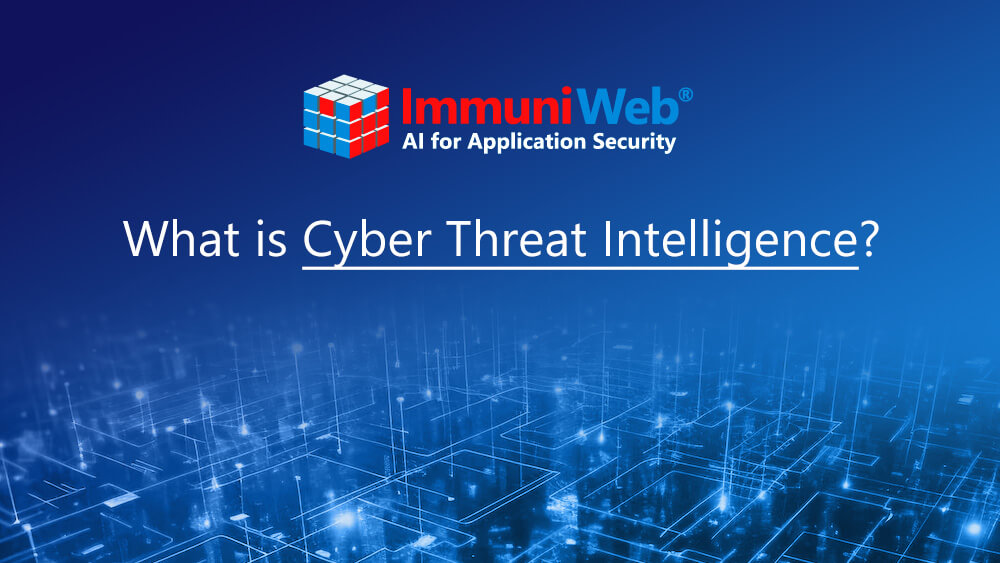What is Cyber Threat Intelligence?
Cyber Threat Intelligence (CTI) is information that helps organizations understand, predict,
and defend against cyber threats.

Cyber Threat Intelligence can be gathered from a variety of sources, such as public and private security feeds, open-source intelligence (OSINT), and proprietary research.
Monitor the surrounding cyber threat landscape and security incidents with ImmuniWeb® Discovery Cyber Threat Intelligence offering.
The goal of CTI is to provide organizations with a comprehensive understanding of the threat landscape, including the motivations, capabilities, and tactics of threat actors. This information can then be used to proactively identify and mitigate potential attacks.
Types of Cyber Threat Intelligence
- Threat Actors: CTI can provide information about the individuals or groups who are behind cyberattacks. This includes their goals, methods, and preferred targets.
- Attack Vectors: CTI can identify the ways in which attackers are attempting to compromise systems and networks. This includes vulnerabilities, phishing campaigns, and social engineering techniques.
- Attack Tools and Techniques: CTI can inform organizations about the specific tools and techniques that attackers are using. This includes malware, exploits, and social engineering scripts.
- Threat Alerts: CTI can provide real-time alerts about specific threats that have been identified. This allows organizations to take immediate action to protect themselves.
Uses of Cyber Threat Intelligence
- Vulnerability Management: CTI can help organizations identify and prioritize vulnerabilities that are being exploited by threat actors.
- Network Security: CTI can inform organizations about the latest attack methods and signatures, allowing them to tune their network security controls more effectively.
- Incident Response: CTI can provide valuable information to investigators during the response to a cyberattack. This includes the attacker's identity, methods, and potential targets.
- Public Security Feeds: Organizations can subscribe to public security feeds from government agencies, security vendors, and industry consortiums.
- Open-Source Intelligence (OSINT): OSINT can be gathered from a variety of sources, such as news reports, social media posts, and hacker forums.
- Proprietary Research: Organizations can conduct their own research to collect CTI. This can be done through penetration testing, threat hunting, and incident analysis.
- Data Aggregation: CTI data from multiple sources needs to be aggregated and organized in a way that is easily searchable and analyzable.
- Data Analysis: CTI data needs to be analyzed to identify patterns, trends, and emerging threats.
- Data Dissemination: CTI needs to be disseminated to the appropriate individuals within an organization, such as security analysts, IT personnel, and business leaders.
- Learn more about Cyber Threat Intelligence.
- See the benefits of our Partner Program.
- Read our Cyber Law and Cybercrime Investigation blog.
- Follow ImmuniWeb on LinkedIn, X (Twitter), and Telegram.
- Subscribe to our Newsletter.
Collecting Cyber Threat Intelligence
There are a number of ways to collect CTI. Some of the most common methods include:
Managing Cyber Threat Intelligence
Once CTI has been collected, it needs to be managed effectively. This includes:
Cyber Threat Intelligence is an essential tool for organizations of all sizes. By understanding the threat landscape and using CTI effectively, organizations can reduce their risk of cyberattacks.

